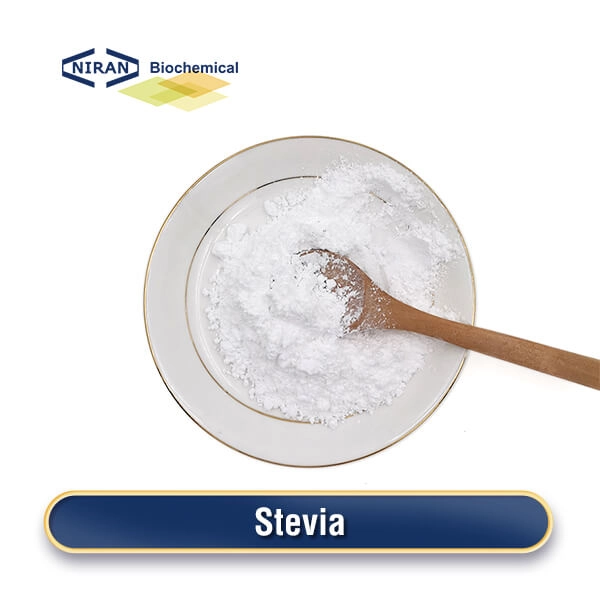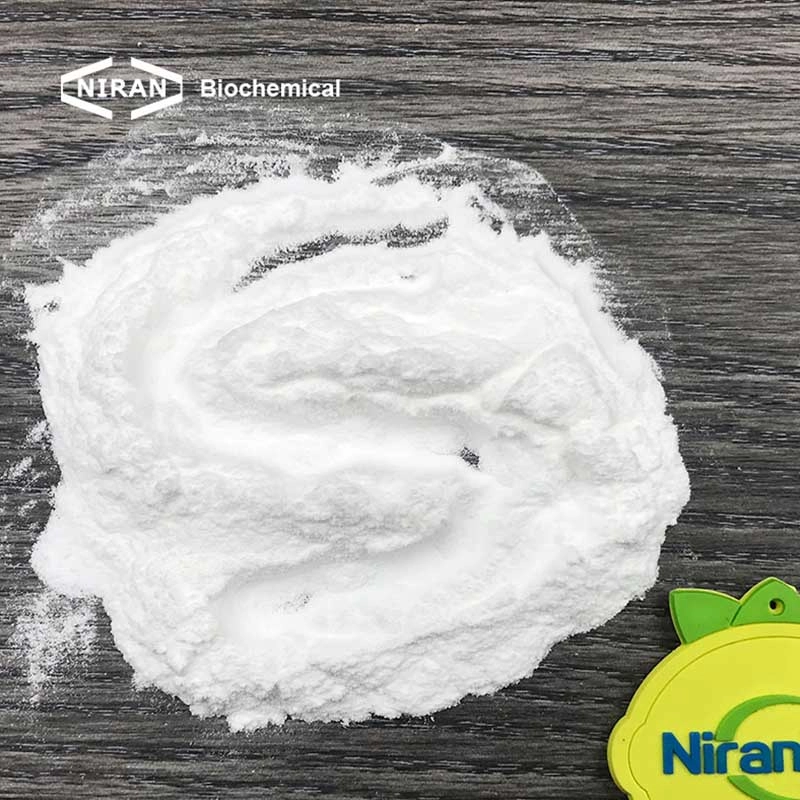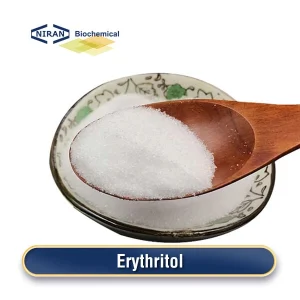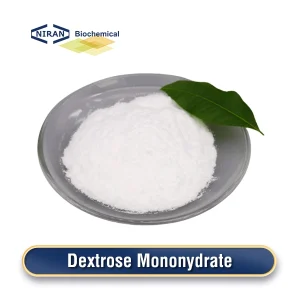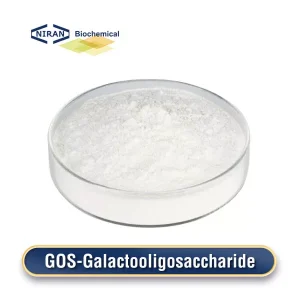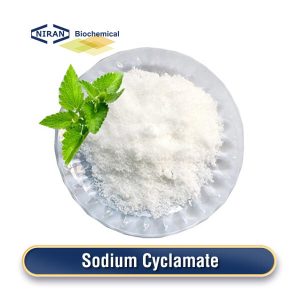Niran Biochemical
YOUR RELIABLE FOOD INGREDIENTS
Send Inquiry
Home » Products » Sweeteners » Organic Stevia
Organic Stevia
- CAS: 57817-89-7
- Chemical Formula: C38H60O18
- Certification: KOSHER, ISO, HALAL, FSSC22000, BRC, etc.
- Standard:
- MOQ: 1000KG
- Shelf Life: 3 Years
Inquire Product
Product Description
What is Stevia?
Stevia is a low-calorie natural sweetener that appears as a colorless crystalline powder with no odor and pure sweetness. Although its calorific value is only 1/300 of that of sucrose, its sweetness is approximately 300 times more than that of sucrose. It is easy to absorb moisture in the air and is widely used in various applications in the food industry.
Stevia is extracted by soaking dried leaves in water, straining the liquid to remove stems and leaves, and then further purifying the liquid using food-grade alcohol or water. This process of extracting plants is entirely conventional. The end product is a very sweet, natural, and pure sweetener that is safe to eat on a regular basis and does not raise or lower blood sugar levels.
Related parameters:
| ITEMS | SPECIFICATION |
| Oder | Characteristic |
| Total Glucoside Content/% | More than 99 |
| Rebaudioside A /% | More than 99 |
| Stevioside/% | |
| Rebaudioside C /% | |
| Sweetness | More than 450 |
| Specific Rotation | -30°~ -38° |
| Absorbency | Less than 0.05 |
| PH | 4.5-7.0 |
| Burned residue/% | Less than 0.2 |
| Loss on Drying/% | Less than 5 |
| Lead(Pb)/(mg/kg) | Less than 1 |
| Arsenic/(mg/kg) | Less than 1 |
| Methanol/(mg/kg) | Less than 200 |
| Ethanol/(mg/kg) | Less than 5000 |
Recommended dosage
| Food name | Maximum usage(g/kg) |
| Carbonated drinks | 0.3 g/kg |
| Tea drinks | 0.5 g/kg |
| Fruit drinks | 0.4 g/kg |
| Bread | 0.5 g/kg |
| Cake | 0.6 g/kg |
| Cookies | 0.5 g/kg |
| Yogurt | 0.5 g/kg |
| Milk | 0.4 g/kg |
| Milkshake | 0.5 g/kg |
| Soft candy | 0.8 g/kg |
| Hard candy | 0.6 g/kg |
| Chocolate | 0.5 g/kg |
| Soy sauce | 0.3 g/kg |
| Vinegar | 0.3 g/kg |
| Ketchup | 0.5 g/kg |
| Ham | 0.5 g/kg |
| Sausage | 0.5 g/kg |
Stevia has a wide range of uses
1. Food and Beverages: As a natural sweetener, stevia is widely used in the production of beverages, juices, yogurt, ice cream, cakes and other foods. It can provide sweetness without additional calories, so it has attracted attention in controlling weight and blood sugar. Stevia is stable, therefore there are several ways to handle and store it for use in food.
2. Seasonings: In condiments such as soy sauce and vinegar, stevia can extend the shelf life of products and improve product flavor. It can also be used to pickle pickles, making the product taste pure and delicious, stimulating appetite, shortening the pickling time, improving the product qualification rate, and preventing dehydration.
3. Health products and medicines: Due to the high sweetness and low calorie characteristics of stevia, it is also made into various health products, such as weight loss products and special foods for diabetics. In addition, it is also used to make various medicines, such as oral care products, cough syrups, etc. The naturalness and high sweetness of stevia make it more and more widely used in these fields.
4. Personal care products: In some personal care products, such as toothpaste, shampoo, etc., stevia is also used as a sweetener and preservative. It is appropriate for the manufacture and storage of these items due to its stability.
5. Other applications: Stevia can also be used in fruit wine to improve the flavor of fruit wine, making it sweet and sour, and changing the viscosity of fruit wine. In candied fruit, preserved fruit, fruit cake, cold fruit and other products, it replaces part of sucrose and reduces the sugar content, making it low in sugar and low in calorie value, meeting the demand for healthy food among modern people.
User asked question:
Q: Why use stevia instead of sugar?
A: From a health perspective:
1. Stevia contains almost no calories, which is very suitable for people who need to control their weight or calorie intake.
2. It’s safe for diabetics and won’t raise blood sugar levels noticeably.
3. Stevia is not easily fermented by oral bacteria and will not cause tooth decay.
From a nutritional perspective:
1. Stevia is derived from the natural plant stevia and is considered a healthier sweetener option.
2. Studies have shown that stevia has no toxic side effects on the human body and is relatively safe for long-term consumption.
From a food processing perspective:
1. The sweetness of stevia is 200-300 times that of sucrose, and only a small amount is needed to achieve the ideal sweetening effect, reducing the amount used.
2. Stevia is resistant to high temperatures and is suitable for baking and high-temperature processed foods.
3. Stevia is stable in acidic and alkaline environments and will not lose its sweetness due to changes in pH.

